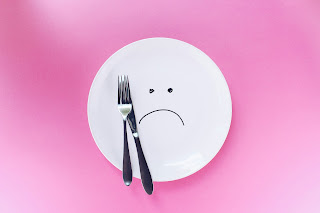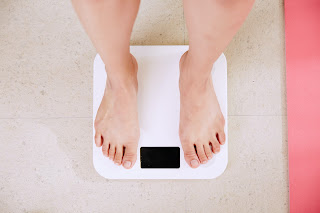Is the carnivore diet the best for weight loss?
I’ve seen a few posts circulating on social media hailing the carnivore diet as the best diet to follow so I thought it was time I made a post dissecting it.
This is a long one, so buckle up.
What is the carnivore diet?
The carnivore diet is a diet that focuses on eating foods
from an animal origin and excluding plant foods.
It means someone can eat eggs, meat, organ meats, fish, and
some dairy.
But fruit, vegetables, grains, nuts, seeds, beans, and
legumes are on the no-no list.
The diet apparently has benefits like improved heart health,
increased mental clarity, a better response to insulin, and of course the big
ticket item that gets everyone talking - weight loss.
At first glance, I’m thinking ‘how would you make a meal out
of only meat?!’.
Negatives of the carnivore diet:
Let’s get into some of the many drawbacks of following this
diet.
It’s highly restrictive and unbalanced:
The carnivore diet ignores most of the principles of a
balanced diet as it chooses to focus only on animal foods. The diet disallows
any plant product, so it doesn’t follow a balanced diet of aiming for meals to
contain complex carbohydrates, fruit and vegetables, a lean protein source
(animal or plant based) and a serving of fat.
Focusing on only one food group isn’t healthy. But animal
products do contain protein and fats so we can applaud it for hitting 2 out of
the 3 macronutrients, I suppose.
It simply goes against everything we know about nutrition, and that
fact that a balanced diet positively impacts our health and lifespan.
This makes the carnivore diet very restrictive, and I can
imagine you’d run out of meal ideas fast. I’m not sure of the longevity of this
diet as it’ll be hard to keep going with such limited ingredients. Not to
mention the cost of animal protein is very expensive, compared to plant
proteins like beans or lentils.
I just don’t see how this would be sustainable in the long
term.
It’s likely to lead to nutrient deficiencies:
One nutrient you for sure won't be deficient in when
following this diet is protein. But the diet is lacking in other nutrients like
fibre, vitamin C, and vitamin E to name a few.
Let’s take a closer look at fibre.
The complete lack of plant foods means someone following the
diet will be getting approximately 0g of fibre a day. Which is a far cry from
the government recommendation of 30g daily.
Fibre is only found in plant foods and has many benefits
such as lowering your cholesterol levels, helping keep your bowels regular, and
helping to control your blood sugar levels. I just can’t see the benefits of
excluding such a useful part of someone’s diet.
Linking onto the cholesterol lowering properties of fibre, a
meat only diet is bound to be higher in saturated fat, which is what rises a
person’s cholesterol levels. So, it’s a double negative on that count.
Apart from fibre, the carnivore diet lacks in other
nutrients like vitamin C, phytochemicals, and antioxidants which do wonders for
your health and are mainly found in plants. I’m really struggling to see the
justification from eliminating plant foods.
But to be completely fair, you can get vitamin C from beef liver,
as long as you eat 300g of it each day to get a big enough dose to meet your
requirements.
If you’re following a low dairy version of the carnivore
diet, you’d also be lacking in calcium which is essential for bone health. Calcium
is found in dairy products, green leafy vegetables, soy products, and fish with
soft edible bones. It could be tricky to get enough from just meat and fish.
The carnivore diet is very extreme and risks several
nutrient deficiencies, without a good reason to.
It can lead to disordered eating:
This amount of restriction concerns me as we know that a
highly restrictive diet can lead to disordered eating behaviours. Disordered
eating is eating patterns that aren’t under the criteria of an eating disorder
but can still negatively affect someone.
Signs of disordered eating can include avoiding entire food
groups and only eating certain foods, which is exactly what this diet tells you
to do. This could lead to other behaviours like emotional eating, or calorie
restriction which negatively effects someone’s relationship with food.
Dieting can also increase the risk of eating disorders like
binge eating disorder and bulimia which can be very harmful and damaging to
your health.
It isn’t just the carnivore diet specifically that can
increase your risk of an eating disorder, any form of dieting can. I just don’t
think it’s worth the risk, especially as the carnivore diet doesn’t sound very
pleasant to follow.
I think I’ve covered enough doom and gloom for now. I want
to be fair and provide some potential positives of the carnivore diet too.
Positives of the carnivore diet:
It reduces intake of ‘junk’ food:
By the carnivore diet not allowing any plant foods, it means
it avoids ultra-processed foods like biscuits, pastries, chocolate, cakes,
crisps, and sweets. Having these foods in excess can lead to weight gain and
increase a person's risk of certain diseases. By steering clear from them, you
remove this risk.
This is an obvious positive and can have positive impact on
someone’s health, especially if they frequently consumed those foods.
However, I don’t think you need to completely cut out all of
these foods, they can still be enjoyed in moderation. That’s what a balanced
diet is after all.
Other ‘benefits’:
I struggled to find other legitimate positives of the
carnivore diet. While there are claims of things like improved heart health,
more mental clarity, and a better insulin response, these are just claims.
For example, I don’t see how you’d improve your heart health
as the diet will be higher in saturated fat which increases cholesterol levels, and the risk of heart disease. The diet is also low in fibre, which is what can
help to lower cholesterol levels.
I can’t see any strong positives for this diet, but I
haven’t touched on weight loss yet.
Will the carnivore diet lead to weight loss?
The carnivore diet is essentially a ketogenic diet - that means low carbohydrate and high fat.
Considering the
body runs on glucose, (a carbohydrate), I don’t see why you’d exclude it from
your diet, but that’s for another day. I’ve actually got a blog post on the
keto diet here.
I mention it being a ketogenic diet as people often partake
in a ketogenic diet to promote weight loss. The logic behind this being that if
your body isn’t able to use carbohydrates for energy, it’ll use stored fat
instead, which leads to weight loss.
One of the claimed benefits of the carnivore diet is weight
loss. I can see how that will occur as
the diet is very high in protein, moderately high in fats, and low in
carbohydrates.
I couldn’t find studies on the carnivore diet specifically, but there is lots of evidence that high protein diets lead to weight loss.
Protein takes longer to digest and keeps you fuller for
longer. So, if you’re full you’re less likely to eat, which can lead to a
calorie deficit. Also, as protein takes longer to digest, it means your body
uses more energy in order to breakdown and digest all the protein eaten. This
increase in metabolism can contribute to the number of calories your body uses
up in a day.
To put it simply, eating less and using up more energy =
weight loss.
So, for as long as you’re able to keep the diet up, weight
loss will occur. But given how restrictive the diet is, I don’t know how long
someone would be able to maintain it. If someone was to go back to their usual
style of eating, weight regain is likely.
I hope this post has given you a balanced view of the
carnivore diet. I personally don’t think it’s even worth trying as it’s just
not realistic, but some may find it works for them.
Key points:
- The carnivore diet is when someone only eats meat, fish, eggs, and some dairy products.
- The carnivore diet has many downsides such as being at risk of nutrient deficiencies, being unbalanced and highly restrictive, and increasing disordered eating habits.
- The only positive of the diet is a reduction in ultra processed foods that are less nutritious.
- The diet can lead to weight loss, but any weight loss is likely to return when normal eating habits are resumed.
Let me know in the comments if you’ve heard of the carnivore
diet before!
Bye for now 👋
References:
Fibre: https://pubmed.ncbi.nlm.nih.gov/33096647/
Vitamin C in liver: https://quadram.ac.uk/UKfoodcomposition/foods/liver-calf-raw/
Government guidelines for daily nutrient intakes: https://assets.publishing.service.gov.uk/government/uploads/system/uploads/attachment_data/file/743790/Dietary_Reference_Values_-_A_Guide__1991_.pdf
Dieting and ED: https://pubmed.ncbi.nlm.nih.gov/27709979/
ED and mortality rate: https://cks.nice.org.uk/topics/eating-disorders/background-information/prevalence/
Heart health: https://www.mdpi.com/2308-3425/10/7/282
High protein diet and weight loss: https://www.ncbi.nlm.nih.gov/pmc/articles/PMC7539343/








.jpg)

Comments
Post a Comment